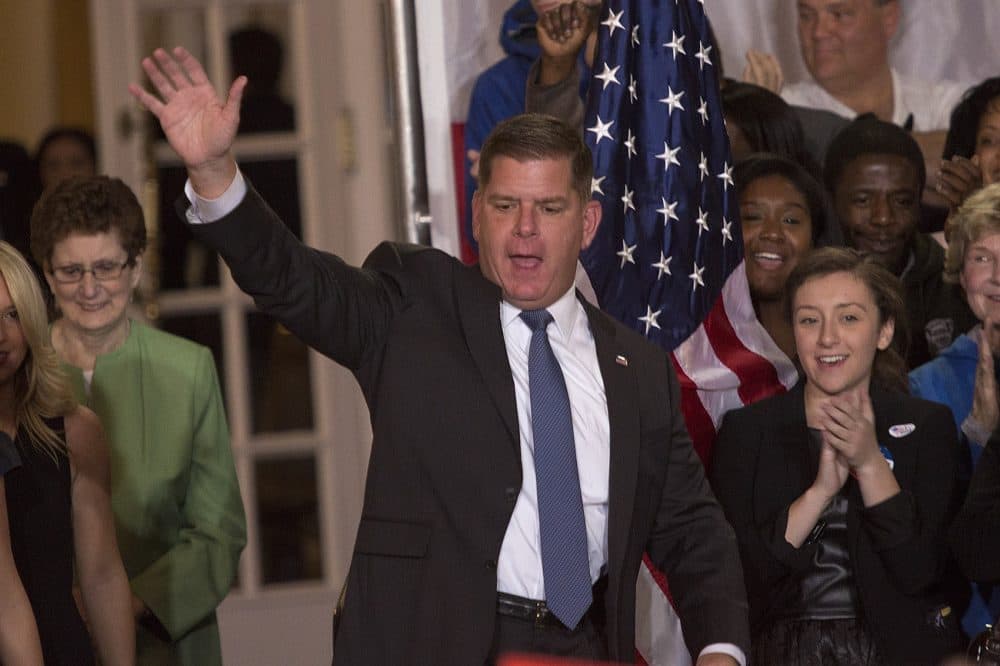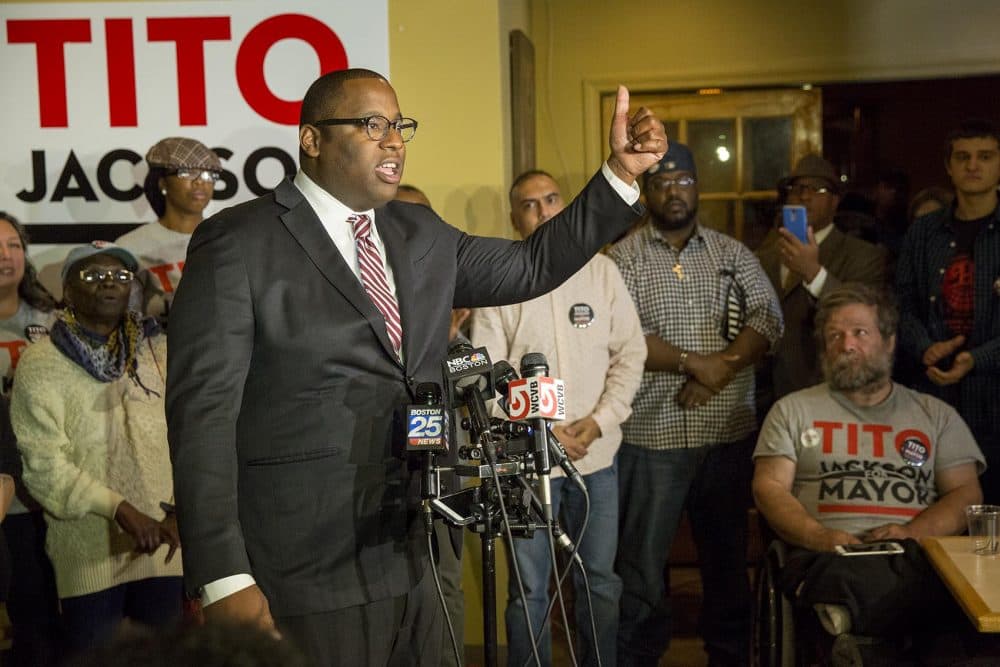Advertisement
Mayor Walsh Wins Second Term And Promises A 'City For All Of Us'

After easily securing a second term, Boston Mayor Marty Walsh in his victory speech Tuesday night promised he'd help create a hub of opportunity for every Boston neighborhood.
"A city for all of us. That's what the next four years is all about," he said.
The sitting mayor defeated his rival, City Councilor Tito Jackson, taking 65 percent of the vote to Jackson's 34 percent.
In his address to supporters, Walsh promised more housing, as well as upgrades to public housing — whether the Trump administration supports it or not.
He pledged to bring universal pre-kindergaten to the city; renovate branch libraries in Dudley Square, Adams Corner, Uphams Corner and other locations; and make improvements to Franklin Park and Boston Common.
The mayor also said his administration would continue to try to build trust between the city's police and community members.
In a brief press conference following his speech, Walsh told reporters he is thrilled by the size of his victory. He won more than 80 percent of the city's precincts, and more than 80 percent of precincts of color, according to his campaign.
Walsh also acknowledged that Jackson's challenge made him more aware of issues dear to his opponent.
"Housing was a big issue. Continuing to strengthen education was a big issue. Economic inequality is a big issue, and also creating jobs across the neighborhoods — so, we both heard it," Walsh said.
Advertisement
Jackson took credit for bringing some of these issues to the attention of the mayor.
"I'm happy now," Jackson said in his concession speech, "that we now have an administration, and we now have a mayor, that uses the terminology we use, which is gentrification and displacement of people in the city of Boston that is occurring too often in every single neighborhood."

Over the last five days of the race, Walsh's campaign says 2,000 volunteers placed 200,000 phone calls and knocked on 120,000 doors. Jackson's campaign resources did not come close to matching that of Walsh's, making the city councilor's get-out-the-vote efforts more challenging. In Boston, experts say it's tough to raise money if you're running against an incumbent mayor.
No incumbent Boston mayor has lost an election since 1949.
But Walsh appears to have largely won because many people are pleased with his leadership. The city is seeing one of its greatest economic booms in its nearly 400-year history.
"[Walsh] seems to have done a good job," said Tony Groves, a chief financial officer who voted in the South End. "I suppose there's no negativeness surrounding Marty Walsh in my mind, so, that's the reason I voted for him."
Support for Walsh held across the economic divide, from the South End, where voters made their way to the polling place past patrons of expensive restaurants, to the Mary Ellen McCormack projects in South Boston, two-and-a-half miles away. That's where Francisco Mendez, who is disabled and does not work, voted.
Mendez said he worries about gangs, shootings, drugs and syringes he says he sees everywhere. He voted for Walsh.
"He's doing a great job. I think he's doing good," Mendez said. "He's a great mayor, and I hope he follows the steps of Mayor [Thomas] Menino."
Menino, Boston's mayor before Walsh, was the longest-serving mayor in the city's history.
Walsh won South Boston and every neighborhood across the city except for Roxbury and Jamaica Plain. Here's our ward-by-ward map of the results:
With reporting by WBUR's Simón Rios
This article was originally published on November 08, 2017.
This segment aired on November 8, 2017.
